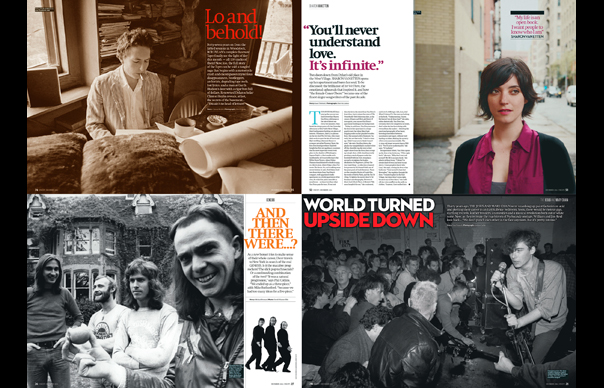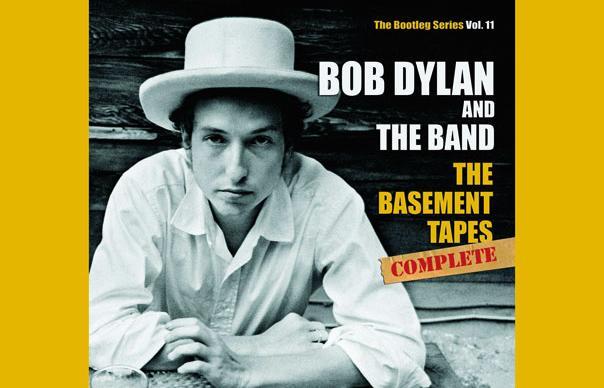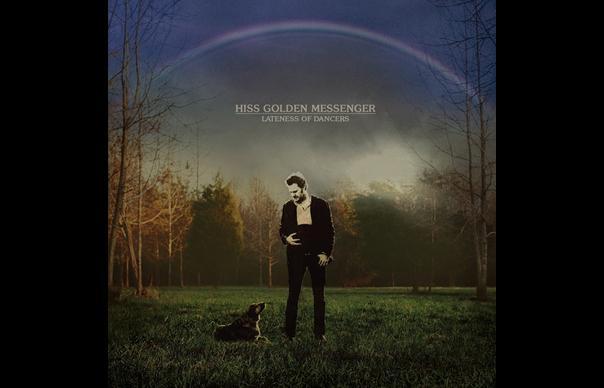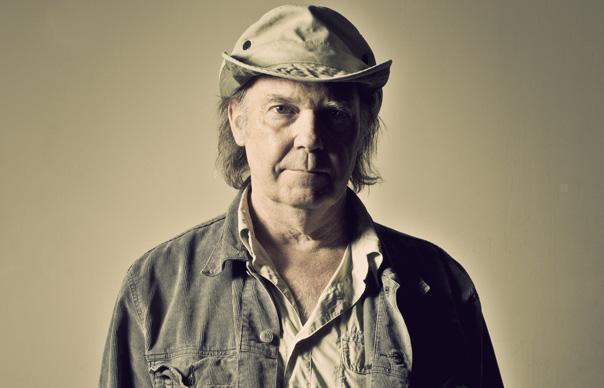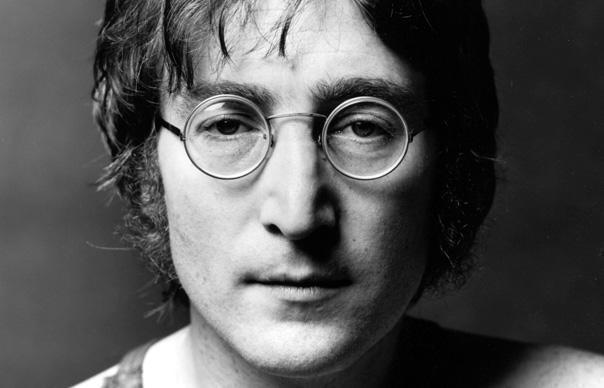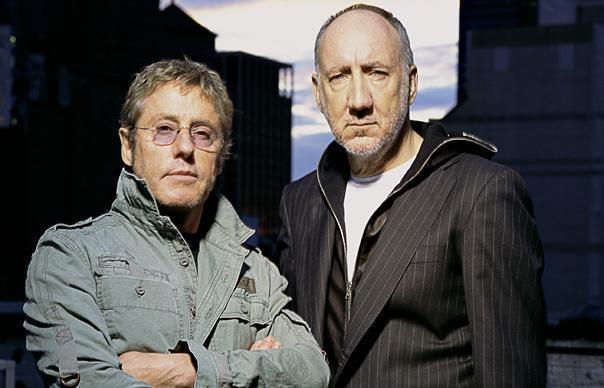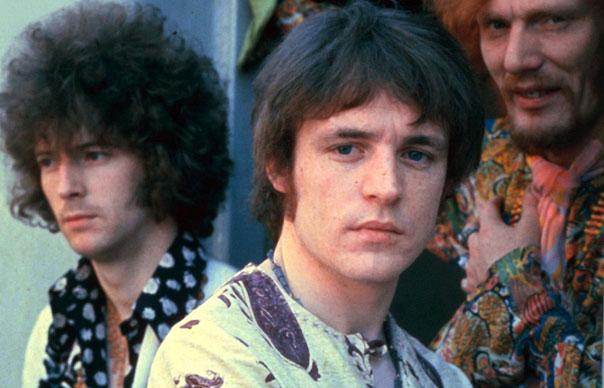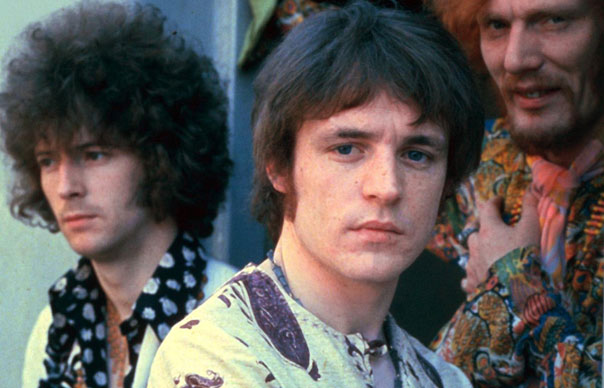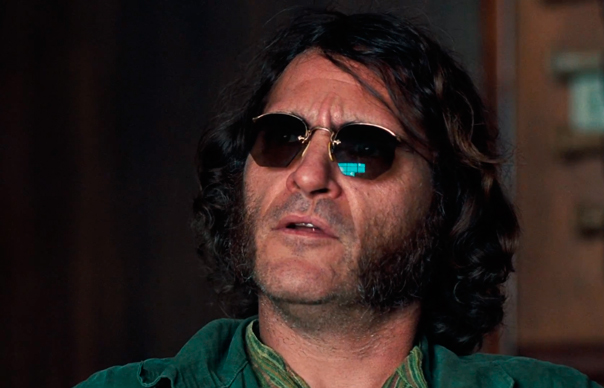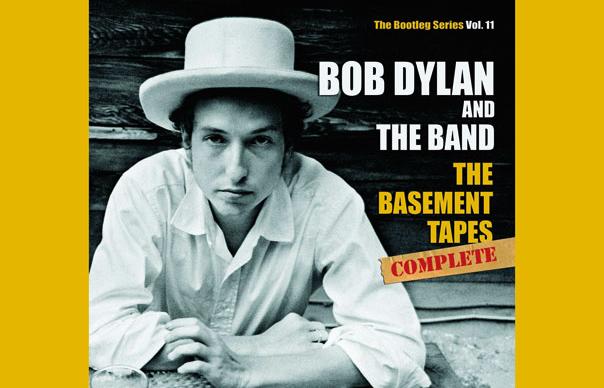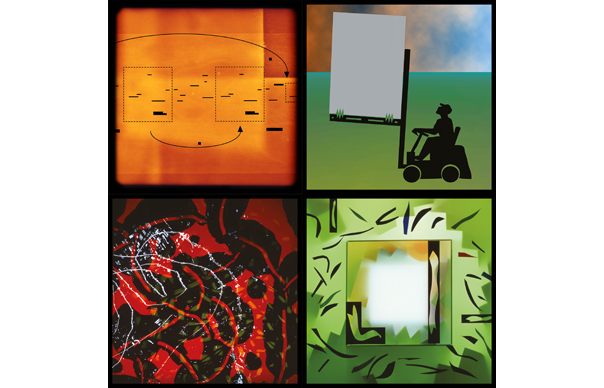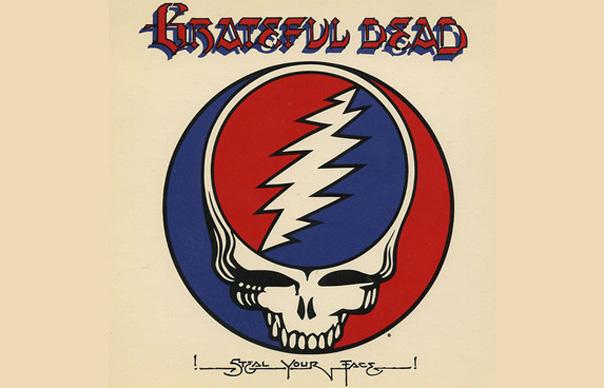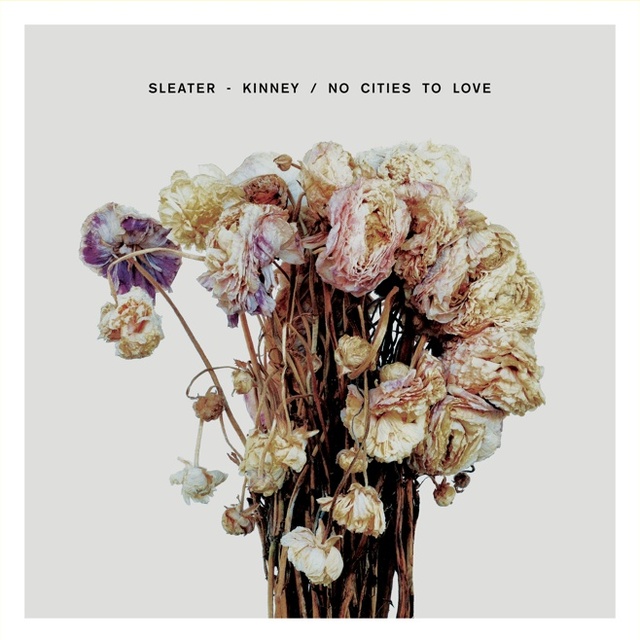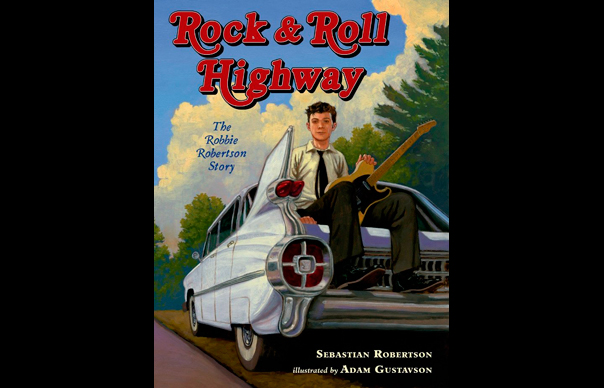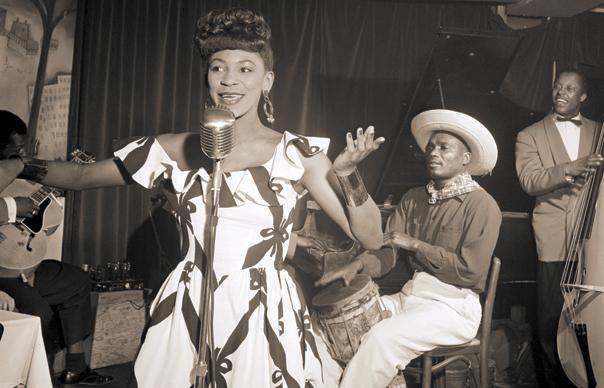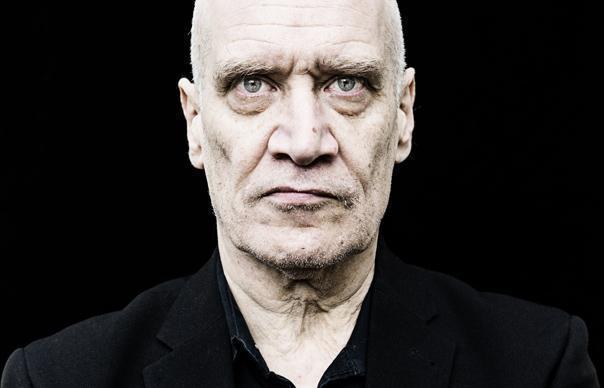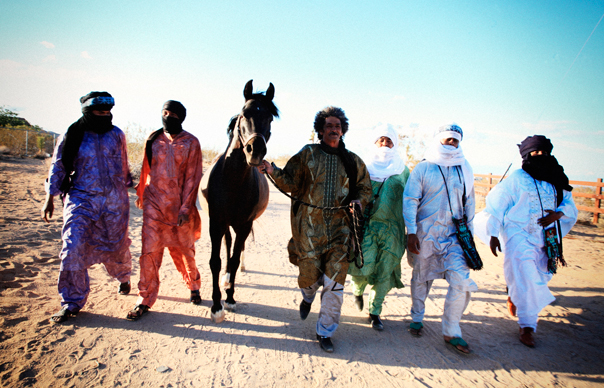Siouxsie And The Banshees are set to reissue expanded versions of their later albums, including Peepshow and Through The Looking Glass, on October 27 – here, in this feature from Uncut’s November 2012 issue (Take 186), the band explain how they created their opulent, psychedelic masterpiece, A Kiss In The Dreamhouse, dealt with the unraveling of their brilliant guitarist and froze microphones in buckets… Words: Garry Mulholland
_____________________
When the bass player and the manager of Siouxsie And The Banshees arrive at The Priory, they get a shock. Their guitarist, who has recently been sectioned by his wife, is here primarily to be treated for a worsening drink problem. But he is currently, they are informed, in the pub. Steven Severin and Dave Woods walk around the corner to the bar in question, and find John McGeoch surrounded by strangers. He kisses them. He’s shaved his head completely bald and is sporting a fresh tattoo. He looks nuts.
“He’d gone to the pub with some day-release people from the home,” recalls Severin, 30 years later. “It sounds funny, you walk into the pub and there’s 10 nutters! We couldn’t see… there was no end in sight. What the hell do we do?”
The band was starting a UK and Far East tour in seven days. Severin had been abandoned by bandmates mid-tour before. Never again. He left the pub and made a call. By the end of the day, The Cure’s Robert Smith was, for the second time, the guitarist of Siouxsie And The Banshees.
On the day after the visit to Roehampton, the Banshees released their fifth and best album, A Kiss In The Dreamhouse. It had already received the most adoring reviews of their career, and would reposition its makers as purveyors of an opulent, sensual new form of ’80s psychedelia. Its star, some would argue, was the Scottish guitar genius that Severin had just fired. “We’d been through a lot together and it had just felt really solid,” Siouxsie Sioux tells Uncut, recalling the end of the Banshees’ imperial phase with a mixture of dry amusement and regret. “Nothing could derail us. Except,” she adds, knowingly, “ourselves.”
_____________________
In the summer of 1981, Siouxsie And The Banshees were a happy band. Or at least as happy as a group of confrontational characters and mercurial talents with a history of dramatically changing lineups could ever be. They had survived the traumatic mid-tour departures of drummer Kenny Morris and guitarist John McKay in September 1979, which prompted Smith’s first spell as temporary Banshees guitarist, and had since recruited the outstanding reggae and African-influenced drummer Peter ‘Budgie’ Clark from The Slits. After some lobbying, they had also eventually persuaded guitarist John McGeoch to leave Howard Devoto’s Magazine to become a full-time Banshee. This was the lineup that in November 1981 completed a five-month European, UK and American tour in support of the Top 10 success of their fourth album, Juju.
What should have been a moment of celebration, however, was soured by the reaction of manager Nils Stevenson to the growing romance between Siouxsie and Budgie, which had developed during sessions for the “Wild Things” EP, the debut by their side-project, The Creatures, the sleeve of which pictured the champagne-happy couple cavorting in the shower of a Newcastle hotel room, bare nipples, ecstatic faces and all. This wasn’t a problem for McGeoch or even Sioux’s one-time beau, Severin. But Stevenson, another of Siouxsie’s former lovers, freaked. Unresolved feelings towards Sioux led him back to a heroin habit he’d kicked when first managing the group.
“He became erratic and unreliable,” says Sioux now. “He came out to the last show in New York at The Peppermint Lounge and just… lost it. One particular situation got out of control and John pinned him against a wall and said, ‘Just fucking go home.’ He was too obsessive towards me and I felt suffocated by it. It was almost a Play Misty For Me scenario. He’d be waiting outside my house… it was almost scary.”
Stevenson was fired in the spring of 1982, just as the Banshees started work on their fifth album, despite Sioux losing her voice while on tour in Scandinavia in March. The follow-up to Juju would be “lush and exotic, and as aurally seductive as possible”, Sioux recalls. Severin had even come up with a title, inspired by a piece of twisted Hollywood history that author James Ellroy would subsequently make famous in 1990 novel LA Confidential. “I was watching some hour-long TV show and it was all about the ’40s when they apparently had these brothels where the women had been surgically altered to resemble the stars of the day. The title just came to me after that. It was funny when the movie of LA Confidential came out, because that’s exactly where it came from.”
The heady imagery of A Kiss In The Dreamhouse needed a willing facilitator of a different sound. In October 1981, the Banshees had attempted to record a proposed new single, “Fireworks”, with Kaleidoscope/Juju producer Nigel Gray. The recording hadn’t gelled, so the band turned to Mike Hedges, who had produced The Creatures’ “Wild Things” EP at his Camden Town studio Playground in Bayham Street, London NW1. The torrid, string-driven wall-of-sound The Cure producer helped sculpt for May 1982’s “Fireworks” single opened a new direction for an increasingly confident Banshees.
The main bulk of the Dreamhouse sessions took place at Playground between June 10 and July 18, 1982, and were both the most productive The Banshees had ever been involved in and a disaster waiting to happen. The feverish desire to write, record, experiment, party and avoid sleep bore extraordinary creative fruit while taking an immense toll on each member of the band.
“With Dreamhouse, it was the intensity,” recalls Budgie, with the hint of a shudder. “Not the hard work, but the intensity of being in the studio and living it. It felt round-the-clock. It felt like we never went home.”
“The band drank a lot,” laughs Mike Hedges. “Every day they came in someone would go back out and buy four or five bagfuls of wine which would then go in the fridge. That was at about five in the afternoon and we knew it would be an all-nighter. We were working 14-hour days, and I don’t think I was drinking as much as the band, because I couldn’t have done my job.”
“The boys started experimenting with cocaine and speed during the making of Juju,” says Sioux. “John was very organised on the getting-the-cocaine front.”
Sioux had discovered a more interesting fuel than speed and cocaine. Hedges had introduced her to a brand of LSD called California Sunshine. When a drunken 5am studio jam produced an oddly beguiling take on cocktail jazz, led by McGeoch’s atonal piano, Sioux took the tape home and proceeded to edit and write the song that would become “Cocoon” while tripping. The lyric sees Sioux recede into childhood, lying in a cot, hugging her knees, imagining the thoughts of a caterpillar hiding “in the cotton wool cocoon” as a metaphor for infant insecurity. “When we were doing these sessions and I first took acid, I remember thinking, ‘I wonder if I should go and see my mum and just say, “Here, Mum… let’s take some acid together.”’ I remember thinking, ‘Is that a good idea, or could she die from it?’ I really wanted to understand everything about where she came from and my childhood.”
Looking at Sioux’s Dreamhouse lyrics as a kind of once-removed regression therapy makes “Circle” – an experimental song based around an ever-circling loop of a section of orchestra from “Fireworks”, with a lyric that Sioux describes as ‘the depressing realisation that you’re doomed to repeat the sins of your parents’ – especially disturbing. Because when Sioux was still nine-year-old Susan Janet Ballion of Chislehurst, she had been sexually abused by a neighbour. Was this childhood horror the backstory for “Circle”?
‘“Circle’ isn’t linked to that. But that incident has shaped me and the way I protect myself. Seeing through the idea of pure sexual allure and understanding that it’s usually a controlling thing. It can be in an extreme situation, like an older person abusing a much younger person… but most relationships can be broken down into someone being manipulated and overpowered by someone else.”
Similarly, “Obsession”’s tale of twisted love – wherein a spurned lover breaks into their ex’s home and places locks of hair on their pillow – can’t help but be informed by Sioux’s experience with Nils Stevenson. But this stalker testimony – with an appropriately stalking rhythm provided by Sioux stomping on a mic’ed up drum riser, rather than drums – is not exactly what it seems.
“This all came about from the Juju tour in America,” Sioux explains. “What I found most intoxicating about New York was the amazing bars and I had this amazing conversation with a tattooed sailor. He told me this story of someone who became so obsessed by their ex-lover that they’d break into their flat and leave their pubic hair on their pillow. It was like a folklore tale. Was I applying my experience with Nils to the story? Well… it’s a connection. It made the story more poignant and allowed me to live in the place of the song.”
But the psycho-sexual nastiness of the themes was being constantly undercut by the playful experimentation of Hedges. “Hedges would invent things for us to do when we got bored,” says Budgie. “These were either, a) very constructive, or b) a complete waste of time. We let off hundreds of indoor fireworks. We found out that fire extinguishers do very strange things to fabric. We froze buckets of water with microphones in them to see what would happen as they thawed out.”
The black comedy reached a peak on “Slowdive”. Over a motorik Budgie beat, Siouxsie mocked old-school lists of dance moves like “The Locomotion”: “Put your knees into your face/And see if you can race real slow”; “Taking honeysuckle sips/From your rolling hips”. “I wanted to turn the Jane Fonda Workout on its head,” Sioux laughs.
When violinist Anne Stephenson let out a cry of pain during the recording of “Slowdive”, she unwittingly gave The Banshees their very own “I’ve got blisters on me fingers!” moment. On the released recording, Stephenson’s “Oh my God!” provides the song’s false ending, an expulsion of eroticised exhaustion before the song simply starts again from the top, and eventually fades. “Of course I was pleased,” Stephenson laughs. “I know it sounds like an orgasmic gasp… the best one I’ve ever done, I suspect.”
This hint of “Helter Skelter” was fitting. The Banshees had covered “Helter Skelter” way back on The Scream in ’78, and, as far as Severin is concerned, The White Album is the major influence on Dreamhouse. “We were listening to it a lot, in terms of the variety of songs, the kind of instrumentation they would use. We were trying to launch ourselves into a post-psychedelic opulence, I guess. Hence the strings, hence a lot of really lush imagery. I would say something like ‘Green Fingers’ is our ‘Savoy Truffle’, our quirky little George Harrison song.”
So, when Budgie spurted an entire bottle of warm champagne over a desk at Playground, where else could The Banshees go but Abbey Road? In Studio 2, the band and Hedges continued work on “Melt!” and “Obsession”. When Playground was once again ready for action, the hard work of honing the sprawling sessions into a focused suite of songs was completed by Sioux and Hedges alone in a week of intense editing and vocal overdubs. It put a dangerous strain on a voice that had gone completely in Sweden just a few months before. One doctor in Gothenburg had advised Sioux to give up singing altogether. “Sioux was struggling a bit,” confirms Hedges. “It wasn’t easy for her. But Sioux’s not the sort of person who would accept that if she didn’t stop singing she’d lose her voice. She’d just go, ‘Oh – fuck off’ and sing anyway. I think the vocals on that record are really brilliant.”
At the end of July, the Banshees played one-off shows in Milan and at the Elephant Fayre in Cornwall. Sioux worked on the Gustav Klimt-inspired Dreamhouse sleeve with Al McDowell of design company Rocking Russian and photographer Michael Costiff. “Slowdive” was chosen as a single and a video made where the boys had to do a corny dance routine behind Sioux, and John McGeoch struggled with the relatively simple physical demands. McGeoch was quickly unraveling, and, while the band had seen signs at the end of the Dreamhouse sessions, they had chosen to ignore them.
“He wasn’t spending as much time at the studio by the end,” says Budgie. “There was a problem with ‘She’s A Carnival’. It was like, ‘Hang on… this guitar’s not really doing it,’ from Mike and Steven. And that was the first time I’d heard that. There was a more serious problem for John that none of us were aware of, and we didn’t realise until we got to those gigs in Madrid.”
On October 29, the Banshees flew to Spain for two shows at Madrid’s Rock Ola Club. John McGeoch arrived in a shocking state of disrepair. Recalls Severin: “At the first gig, we started playing ‘Arabian Knights’ and he started playing ‘Spellbound’ – that’s the funny side of it. But it wasn’t funny. He was in a bad way. When Nils left, John and I had spent a lot of time trying to get to grips with the finances. It was really stressful. I think John had some kind of nervous breakdown.”
“It became obvious that he didn’t know where he was,” says Budgie. “I thought he’d just gone too far that night, but much later he admitted that he’d been given a Valium to calm his nerves, ’cos he was shaking either from withdrawal or too much drinking. If we’d been noticing this we might have said the show can’t go on. But we weren’t.”
On the band’s return to England, McGeoch was sectioned and sent to The Priory. After the Severin and Woods visit, the decision to sack McGeoch was made instinctively and instantly. There wasn’t even a band meeting. “It sounds very callous,” Sioux acknowledges. “I wish it hadn’t happened. But alcoholism is not something that gets fixed overnight, or even in a year. It takes a lifetime. Maybe even then it never truly happens.’
On November 7, 1982, six days before the Banshees set off on a UK tour with Robert Smith on guitar, A Kiss In The Dreamhouse was released to rapturous acclaim. In the NME, Richard Cook, a Banshees-sceptic, called the album: “…a feat of imagination scarcely ever recorded” before concluding, “I promise, this music will take your breath away.” Melody Maker’s Steve Sutherland called it “an intoxicating achievement”. All the reviews noted the change of direction, away from the occasionally studied blackness that made the Banshees “goth”, towards what Cook called “pure, open-minded ambiguity” and “flooded radiance and flame”.
At the back end of 1982, the Banshees found themselves competing with records as sonically disparate as the Associates’ Sulk, Too-Rye-Ay by Dexys Midnight Runners, The Lexicon Of Love by ABC, New Gold Dream by Simple Minds and Forever Now by the Psychedelic Furs – all records which, in very different stylistic ways, declared the end of arty, doubt-ridden, cynical and critical post-punk’s hold on British alternative rock. By the beginning of 1983, The Jam had split, The Clash had imploded and U2 had made War, an album that transformed punk’s political protest into air-punching, feelgood, stadium rock. Dreamhouse enabled the Banshees to survive the punk culling by wiping the slate clean and making them into the kind of smart, glamorous pop group who could have a huge hit in 1983 with a cover of The Beatles’ “Dear Prudence”, and have the moment feel like natural progression rather than desperate sell-out.
But, despite Dreamhouse achieving healthy sales, reaching No 11 on the UK album charts, and remaining in the Top 40 for almost three months, its singles resolutely flopped. Both “Slowdive” and “Melt!” (which was backed by a version of a French Christmas carol, “Il Est Ne Le Divin Enfant”, that John McGeoch had refused to work on) failed to reach the Top 40.
Severin still feels that the lack of ‘a star turn’ is Dreamhouse’s one flaw. “In some senses, it’s my favourite Banshees album. As a collection of songs, it’s probably more cohesive and has a greater atmosphere than any of our other albums. But it could have benefitted from one more song where we sat down and said, ‘Let’s write a single to go along with this album.’”
The Banshees continued until 1995, briefly reforming for the Seven Year Itch reunion tour in 2002, and all without John McGeoch. The guitarist went on to work with the short-lived The Armoury Show before a stint in PiL that lasted until 1992. But LA’s den of rock’n’roll iniquity took its toll, and McGeoch quit music and retrained to be a nurse. He never got entirely clean and died in his sleep in 2002, aged 48. Budgie still feels guilty. “When he died, it really shook me. I felt I’d let him down. As a band we rarely discussed how each other was doing. And when you get to the nitty-gritty of Dreamhouse, what you find is that we really could have done that a lot better.”
And that is a key element of Dreamhouse’s tragic majesty. It’s a product of addiction, stress, old, sick love and new, dangerous love, money woes and a darkness that would eventually claim three lives: McGeoch, Nils Stevenson, who died of a heart attack in 2002 without ever reconciling with Sioux, and the co-owner of Playground, who died of a heroin overdose soon after the finishing of the album, forcing the closure of the studios. But, as none of the protagonists could talk openly to each other about what they were going through, the terror, desire, depression and anger was poured into the stunningly beautiful music that emerged from a small room in Camden Town.
“We were caught up in the insanity of that moment,” says Budgie. “We were losing the studio. We were losing a member. We were losing our minds. You try to manufacture those things, where you’re trying to live on the edge, take away the safety-net, risk everything, and you’re hoping that, out of the risk-taking, comes something magic. And that’s what Dreamhouse is. But you can’t continue that way.”
Photo: Rex/Sheila Rock
Uncut is now available as a digital edition! Download here on your iPad/iPhone and here on your Kindle Fire or Nook.


